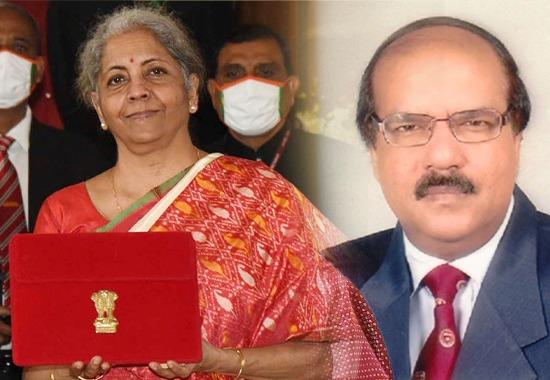The Union Budget 2023 will be presented by Finance Minister Nirmala Sitharaman in Parliament on February 1. This year, the budget is likely to be growth-oriented with a focus on capex, manufacturing, infrastructure, and rural economy. Different sectors have different expectations from the budget 2023.
The broader focus of the budget should be to continue promote growth with a focus on local manufacturing and exports, keeping in sync with the ‘Make-in-India’ agenda. The supply side has been well managed and the demand side needs more attention. Inflation has been sticky and difficult for large section of the society and the government must look at reducing some taxes, both direct and indirect so that more money is available with the people.
The middle class is the backbone of the economy. They’re the main drivers of consumption and economic growth and there needs to be a special focus on them. The government must consider tax benefits to the middle class consumer, the salaried employees who have paid their taxes honestly always. This will have a significant impact on their finances and expenses. It will leave them with additional disposable income in hand which will help drive consumption and boost the economy. Thus, I would love to see some tax breaks for this section of the society in the budget.
Economic Survey 22-23 tabled in the parliament ahead of the mega-budget for FY23-24; Key Highlights
I believe the government will present a growth-focused spending plan, maintaining the impetus on investments in infrastructure development. We, therefore, see the road, railway, and urban infrastructure sectors to see meaningful allocation as the significant beneficiaries of the budget. In addition, I expect healthcare, education, and rural housing to be the other major sectors likely to benefit from increased allocation of funds. India has recently made aggressive plans to achieve a sizable contribution from renewable power sources such as solar and wind. I believe the budget will have a special mention of India’s long-term roadmap toward achieving its targeted renewables capacity in addition to potential tax benefits awarded to the industry. Finally, I also expect the union budget to focus on the government’s investments in the use of technology in the form of artificial intelligence, machine learning, and internet of things (IoT).
For the Indian fintech and startup industries, 2022 was a fantastic year. The upcoming budget should take into account providing tax advantages to consumers, retailers, and ecosystem enablers in light of the growth in digital payment. It should support additional collaborations between banks and fintech in order to boost innovation in the fintech sector. Furthermore, we believe ESOP policy should be relaxed in terms to avoid dual taxation. The government should make the Co-lending module more flexible for PSU & large private banks to participate along with non-rated NBFCs basis their credit underwriting modules. GST subsidy for Fintechs & Financial infrastructure players who are reaching via tech to tier 2, 3, 4 towns & running micro fin programs for unbanked segment should be taken into consideration."
